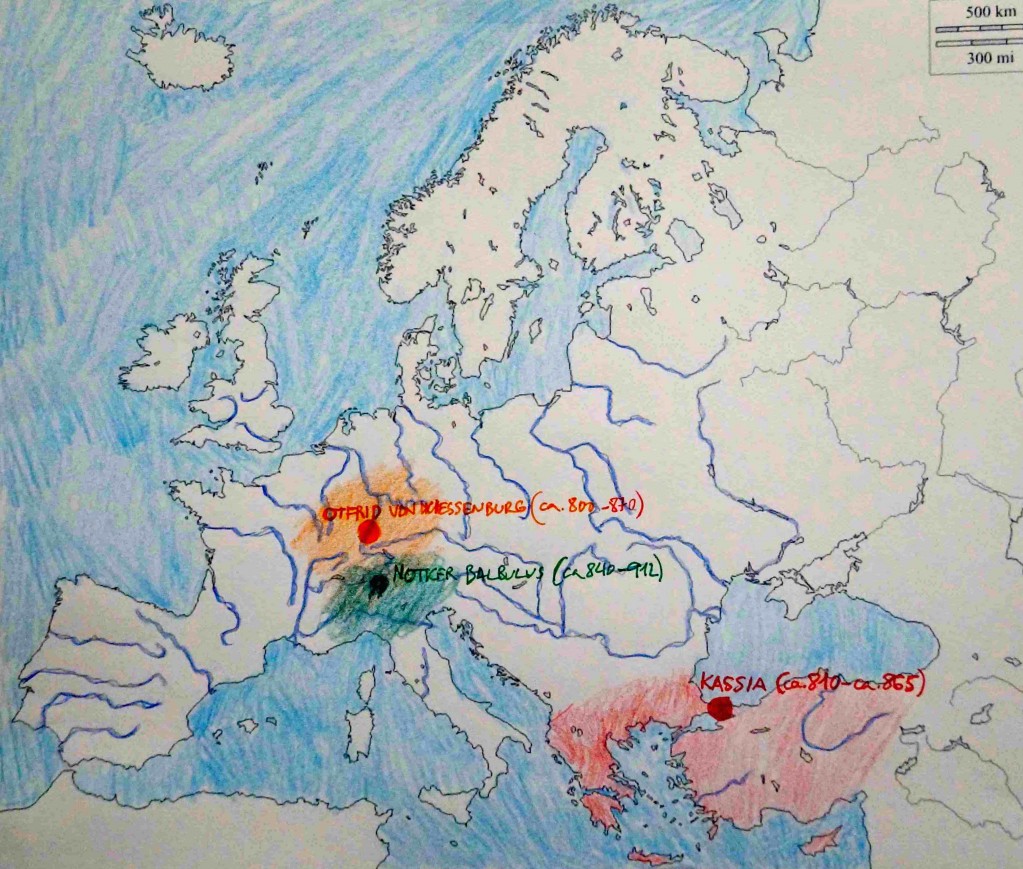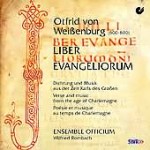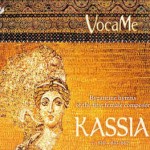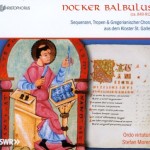
Michael Thallium
One of the obstacles to know about life in the past is that we, human beings, tend to take things for granted and we think things have always been like they are and, fortunately or unfortunately, we have quite a short term memory. There are a lot of us who even find it difficult to remember how our lives were some years ago when there were no mobile phones. And those who have already been born in the mobile era find it really difficult to figure out a life without smart phones, a life without being able to search on the Internet what we don’t know or just want to know. How even more difficult, then, can be to try to imagine how life was for people 1,200 years ago! It goes without saying that speaking about how the musical life was back then is almost mission impossible!
Not long ago I decided to find out about the oldest non-anonymous musical documents known. I found three composers who lived around the same time on this planet Earth: Otfrid von Weissenburg (ca. 800- ca. 870), Kassia (ca. 810-ca. 865), Notker Balbulus (ca. 840-912). Two men and a woman. A woman, Kassia, from East Europe, from the Byzantine Empire. Two men, Otfrid and Notker, from Central Europe. It is true, they shared a limited period of time on the surface of the Earth, but that doesn’t mean they ever met. Communication back then was way much slower than it is today, and distances were insurmountable obstacles in many cases. However, there might be chances that Notker Balbulus could have heard of Otfrid von Weissenburg, because the latter had written a dedication to Harmuat and Werinbert at the end of his Liber Evangeliorum. Hartmuat and Werinbert were two friends of his and monks at the Abbey of Saint Gall, in present Switzerland. And Notker was a monk of that same abbey.

Finding out about the lives of these three people is something like venturing into the unknown, because there is very little information about them. Their dates of birth and death, except for Notker Balbulus date of death, are just approximate. If we consider valid — something that cannot be confirmed — the dates of death of Otfrid (870) and Kassia (865), then we could say there is a period of time of at least 15 years where these three were contemporaries.
 Otfrid von Weissenburg is the first known poet to write in German, or rather, in the language of the franks — “frank” in German means “free”; the franks were free from the Roman Empire —, a dialect of the Southern Rhine. That’s why Otfrid is considered by many the “father of German language”. He spent a big deal of his career as a theologian, monk and scientist at the Abbey of Weissenburg, in Alsace — currently called Wissembourg, in France —. This is where Otfrid’s surname comes from. He was a disciple of Rabanus Maurus (ca. 780-856) with whom he studied at the Abbey of Fulda, in Hesse. The Ensemble Officium conducted by Wilfried Rombach recorded part of Otfrid’s Liber Evangeliorum for the music label Christophorus. I strongly recommend this recording to anyone who would like to know part of the history and music of the carolingian period.
Otfrid von Weissenburg is the first known poet to write in German, or rather, in the language of the franks — “frank” in German means “free”; the franks were free from the Roman Empire —, a dialect of the Southern Rhine. That’s why Otfrid is considered by many the “father of German language”. He spent a big deal of his career as a theologian, monk and scientist at the Abbey of Weissenburg, in Alsace — currently called Wissembourg, in France —. This is where Otfrid’s surname comes from. He was a disciple of Rabanus Maurus (ca. 780-856) with whom he studied at the Abbey of Fulda, in Hesse. The Ensemble Officium conducted by Wilfried Rombach recorded part of Otfrid’s Liber Evangeliorum for the music label Christophorus. I strongly recommend this recording to anyone who would like to know part of the history and music of the carolingian period.
 Kassia was born in Byzantium — currently Istanbul, in Turkey —, that is, about 2,000 km from Otfrid von Weissenburg’s stomping ground. This makes very unlikely that they could have ever met or even heard of each other during their life time. Kassia belonged to the Byzantine Orthodox Church and she founded a convent of which she was its first abbess. During her life, she wrote numerous hymns with melodies and harmonies quite different from those of his catholic contemporary Otfrid. The Ensemble VocaMe recorded part of her hymns for the label Christophorus in 2009. This is another recommendation of mine for you, not only because of its quality, but because Kassia — besides being an advocate for women rights; maybe one of the first feminists — was the first female composer we know of, almost three centuries before the better known Hildegard von Bingen (1098-1179).
Kassia was born in Byzantium — currently Istanbul, in Turkey —, that is, about 2,000 km from Otfrid von Weissenburg’s stomping ground. This makes very unlikely that they could have ever met or even heard of each other during their life time. Kassia belonged to the Byzantine Orthodox Church and she founded a convent of which she was its first abbess. During her life, she wrote numerous hymns with melodies and harmonies quite different from those of his catholic contemporary Otfrid. The Ensemble VocaMe recorded part of her hymns for the label Christophorus in 2009. This is another recommendation of mine for you, not only because of its quality, but because Kassia — besides being an advocate for women rights; maybe one of the first feminists — was the first female composer we know of, almost three centuries before the better known Hildegard von Bingen (1098-1179).
 Notker “The Stutterer” — this is actually what “Balbulus” means in Latin — lived just over 200 km away from Otfrid, at the Abbey of Saint Gall. So, it seems quite likely they could have met or, at least, heard of each other. They both belonged to the same Benedictine Order. Notker introduced the “sequences” in Germany. That was a new way of separating the Latin syllables when singing by using more melismatic melodies. The Ensemble Ordo Virtutum conducted by Stefan Johannes Morent recorded part of Notker’s music for the label Christophorus in 2010. Needless to say this is one of my recommendations as well.
Notker “The Stutterer” — this is actually what “Balbulus” means in Latin — lived just over 200 km away from Otfrid, at the Abbey of Saint Gall. So, it seems quite likely they could have met or, at least, heard of each other. They both belonged to the same Benedictine Order. Notker introduced the “sequences” in Germany. That was a new way of separating the Latin syllables when singing by using more melismatic melodies. The Ensemble Ordo Virtutum conducted by Stefan Johannes Morent recorded part of Notker’s music for the label Christophorus in 2010. Needless to say this is one of my recommendations as well.
The “father of German literature”, the “feminist” and “the stutterer”… Labels are always limiting and they usually fall short. Otfrid, Kassia and Notker, three people whose lives are quite unknown to us today, but their works have lived on for well over 1,000 years now. When I think about them, I can’t help but wonder: how many of our contemporaries are ignored despite the present immediacies of communication? I don’t know either who will write about them in 1,000 years time. What I really know is that I will no longer be here by then to tell their story. I just settle for knowing and loving everything that my brain allows me to. And the most important thing: feeling grateful for it!
Michael Thallium
Global & Greatness Coach
Book your coaching here
You can also find me and connect with me on:
Facebook Michael Thallium and Twitter Michael Thallium
